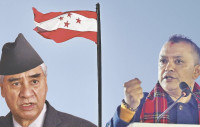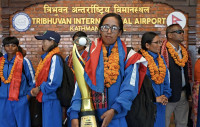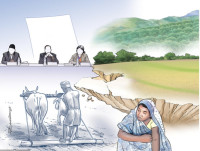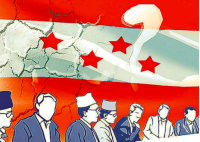Opinion
Will of the people
It is time to implement the constitution and consolidate the rights of the people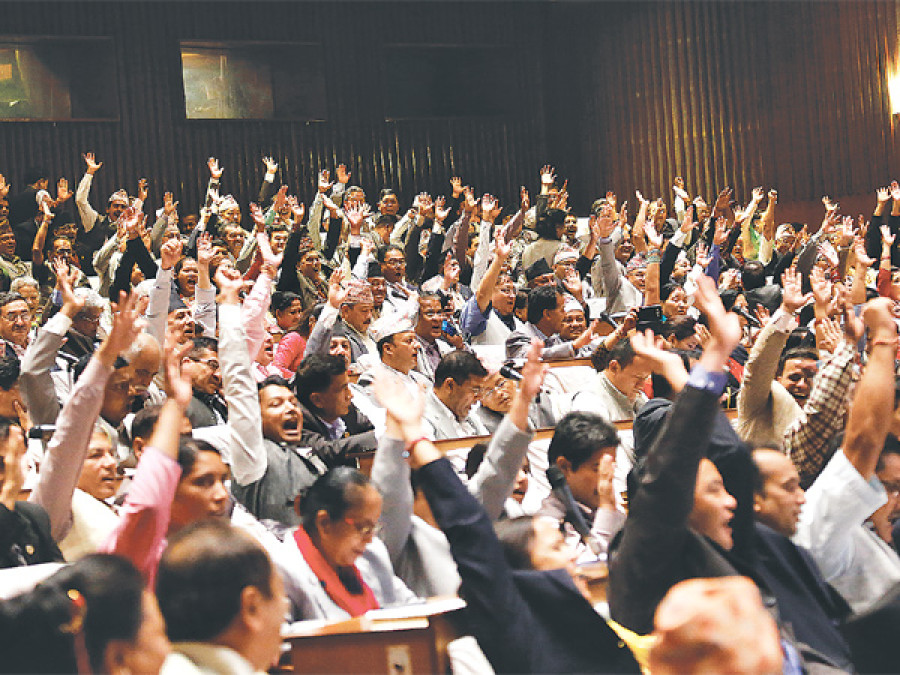
The promulgation of the Constitution of Nepal through the Constituent Assembly (CA) was a landmark event in the political history of the country. The new statute has not only institutionalised the achievements of the people’s movements but also clearly codified the democratic rights of the Nepali people.
Consensual democratic process
As the political parties failed to complete the constitution through the first CA, they promised to promulgate the new constitution within a year after the 2013 elections. All the parties publicly committed to either reaching a common understanding on the contentious issues within six months of the election to the second CA or following the process laid down by the rules and regulations of the CA. Hence, when the political parties could not reach a common understanding on controversial issues within the stipulated time, it was but natural for them to follow the CA rules and regulations. Some lawmakers, contrary to their own previous commitment, boycotted the final stage of the constitution-writing process while the others sought to disrupt the process from outside the Assembly.
Meanwhile, the major political parties, together with other parties represented in the CA, continued to focus on the constitution-drafting process. And finally, after an eight-year long arduous debate, both in the CA and among the people, the Constitution of Nepal was adopted by an overwhelming majority—85 percent of the CA members voted in favour of it. This number is huge compared to other ‘big democracies’ of the world. In India, for instance, only 65 percent of the members of the CA voted in favour of adopting the constitution. While in the US, only 52 percent of members of the CA voted for the statute. So, when the president of the Federal Democratic Republic of Nepal duly declared the Constitution of Nepal in a special session of the CA on September 20, it was celebrated by the Nepali people throughout the country.
Participatory process
All the members of the CA, representing different political parties, energetically participated in the constitution-drafting process in both the first and the second CA. The second CA had taken the ownership of all consensual decisions and common understandings of the first CA along with contentious matters that remained to be discussed.
And contrary to rumours and propaganda spread by some groups, the participation of the lawmakers from different communities and regions was remarkable even in the final stage of the constitution-writing process. A total of 120 Adibasi Janajati (aboriginal ethnic groups) CA members, 67 lawmakers from Madhes (members from Southern plain) community, 21 members from the Tharu community (an ethnic group from the Southern plains) and 14 Muslim lawmakers voted for the new constitution of Nepal. Moreover, the number of the CA members in support of the constitution from the Southern plains, ie, the Madhes, outnumbered the combined number (which is only 57) of those who chose to boycott the CA in its final moments.
So, it is absurd to say that the Madhesis do not support the statute. It is equivalent to making the ridiculous argument that only the lawmakers of the parties who had boycotted the decisive procedure of the constitution-writing process are Madhesis while those from the same region and community are not representatives of the Madhes.
The truth is, some of the self-proclaimed Madhesi leaders of the agitating parties, who lost the 2013 CA elections, continue to be provoked by their defeat.
Supremacy of CA decisions
All the parties and their leaders had contested the elections by promising to promulgate the constitution through the CA. Accordingly, they had agreed upon the procedures, rules and the time frame for completing the constitution-drafting process. They had participated in high-level party meetings, CA plenary meetings and were part of thematic committees and sub-committees both in the first and second CA. Yet, some of the parties and their members astonishingly backed out of their commitments.
All the issues in the statute had been thoroughly discussed and most of them were resolved either by consensus or compromise. As the issue of delineation of provinces was very complicated, the four major parties had agreed to resolve this issue by forming a federal commission after the promulgation of the constitution. However, some of the signatories of the 16-point understanding later changed their stance and insisted on the immediate delineation of the provinces. The major parties, therefore, again deliberated on this matter and proposed a model of federalism.
Document of the people
With regards to the provisions on citizenship, proportional inclusivity and delineation of the constituencies in the constitution are not as problematic as they have been made out to be. All the citizens of Nepal have been provided with equal rights save some provisions for the highest political positions regarding naturalised citizens. Even so, naturalised citizens will be eligible for any appointment to constitutional bodies after 10 years. Citizenship by descent is only required for holding the following position: President, Vice-president, Prime Minister, Chief Justice, Speaker of the House of Representatives, Chairperson of the National Assembly, Chief of the province, Chief Minister, Speaker of provincial assembly and chief of security organisations. One cannot argue that this provision is unjustified as every country has different constitutional arrangements for its highest political positions. The provisions and procedures of citizenship for naturalisation also vary from one country to the other.
Furthermore, the new constitution has clear provisions for proportional inclusivity and the recognition of population while carving constituencies. The three largest parties in Parliament are also ready to make further clarifications in the constitution if it is in the interest of the country and its people. Under these circumstances, it is very difficult to make sense of the general strike and blockade in the border customs. If anything, it has only helped further aggravate the hardships of a country which recently survived a devastating earthquake. Such actions will neither strengthen democratic practices nor secure the rights of people.
Non-compliance to the decisions of the CA is, therefore, tantamount to disrespecting the sovereign people of Nepal, its democratic evolution, political stability, sustained peace, prosperity, social harmony and national unity. So it is time for the effective implementation of the constitution to consolidate people’s rights and to fulfill their aspirations.
Rawal is vice-chairperson of the CPN-UML




 5.12°C Kathmandu
5.12°C Kathmandu
